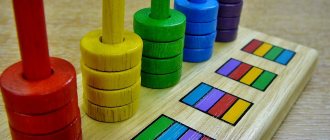Communication skills are the basis that helps a child find friends, make acquaintances and realize himself in society. When a person is isolated in his own little world, it is difficult for him to become in demand and popular. But if he has learned to convey his thoughts to others and communicate with people, he holds the key to personal success.
But this key is not given to every person at birth. The good news is that a child’s communication skills can and should be developed. And our article will tell parents how to do it correctly.
What are communication skills?
Translated from Latin, “communicative” literally means: “communicative”, “sociable”.
Communication is not a separate personality quality, but a whole set of different skills. And it is expressed in the ability to communicate with other people, the ability to build relationships with them.
Conventionally, communication skills are divided into two groups:
- skills that help a person convey his thoughts and feelings (speaking skills, self-control, self-presentation);
- skills that help to understand others (the ability to negotiate, empathize, listen and hear the interlocutor).
Read aloud a lot
Reading aloud helps develop communication skills. When a child reads aloud, he develops speech and gets used to speaking phrases for a long time. Often reading aloud causes embarrassment and uncertainty in children. First, read short and interesting texts together. Then discuss the main idea of each text. This way the child will develop the habit of thinking and sharing opinions. Listen carefully to every statement your child makes and encourage him regularly. This will instill confidence in your child. Gradually, his fear of expressing his opinion will disappear.
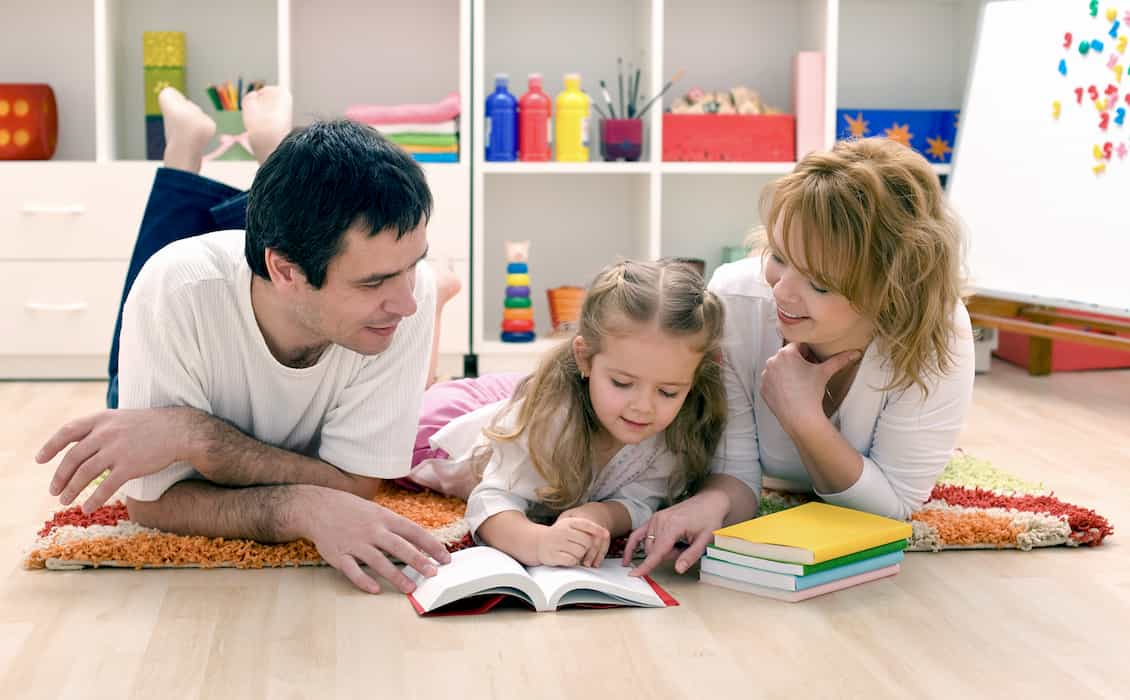
Why does a child need communication skills?
So as not to be left alone. To become a member of society, to be accepted by others, while remaining yourself. If a person does not know how to talk about himself, but only listen to others, he will not become an individual, he will lose his “I”.
The other side is that the child knows how to talk exclusively about himself, but does not know how to listen to others. Such a person will not be able to build quality social connections in the future or expand his social circle.
A little person acquires communication skills gradually as he grows and matures. Step by step, he learns to read non-verbal information (facial expressions, gestures, tone of voice), then he learns the first words. Growing up, he acquires the ability to listen and hear his interlocutor, put himself in his place, and perceive the shades of human relationships.
The first communication skills are formed in the family, then in kindergarten, school, and then throughout life. Therefore, the ability or inability to interact with others depends on those processes that occur from early childhood until the period of maturity.
Some children get along better with others, make contact, and find it easier to communicate with peers and adults. Others experience difficulty and discomfort. And although innate qualities should not be discounted, communication is still one of the aspects of personality development. This means that the ability to communicate can and should be developed.
To develop communication skills in a child, you need to help him master three basics:
- desire to communicate;
- knowledge of the basics of social communication;
- the actual ability to communicate.
Desire to communicate
This means that the child himself must feel the need to communicate with people around him. And this need can and should be developed. If you don't do this, there will be no progress. An adult, due to life experience, can motivate himself to communicate with others. Children don't know how to do this.
Know how to communicate
The desire to interact with others is not enough. You also need to know how exactly this is done. Young children do not know about the norms and rules of communication. Parents suggest how to resolve conflicts with peers, maintain a conversation, say hello, etc.
Ability to communicate
This point follows from the previous one, when communicative knowledge is applied in practice. The ability to communicate consists of a whole complex of practical skills:
- the ability to interest an interlocutor and attract his attention;
- goodwill, friendliness;
- the ability to accept the opinion of the interlocutor and not impose your own;
- the ability to argue information and tactfully defend one’s point of view;
- the ability to captivate your interlocutor, to interest him in your opinion and ideas;
- ability to resolve conflict situations, seek balance when resolving controversial situations.
Another important component of good communication is active listening. It is usually most difficult for choleric children. They can’t wait to tell as much as possible about themselves, their impressions, and hobbies. The interlocutor’s statements are relegated to the background.
If a child has successfully mastered these three skills, then we can say that his communication skills are truly developed.
Analyze life situations
If your child has shared his experiences with you, think together about how to correct the situation. Let's imagine that he has a misunderstanding with his peers. How to help a child in this case? Ask him at what point the controversial situation arose. Solve the problem of communicating with peers using one specific example. Imagine yourself in the place of one of your child's friends. Think about what you can say and how to react in each specific situation. Compose dialogues and speak them in the form of a short scene. This will help your child feel more confident when communicating with friends.
Features of the development of communication skills in preschoolers

At each age stage, children's communication skills develop and improve.
From birth to 2 years
During this period, the child takes his first steps not only physically, but also communicatively. The social circle of children at this age is limited to mom, dad and other close relatives. Children learn to convey their needs to adults and, in turn, understand their interlocutor.
Methods for developing communication skills
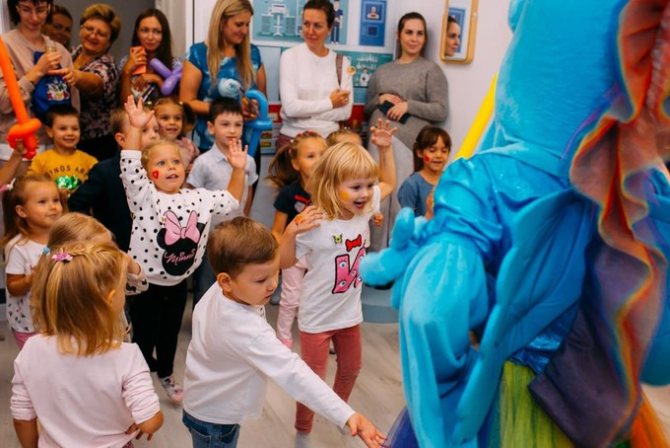
The main ways to develop communication skills are exercise and play.
Before choosing activities for your child, it is useful to take note of a few recommendations:
- Do not try to use a large number of exercises or games at one time, especially with preschoolers. Their performance is low and fatigue is rapid.
- Training should be carried out when the child is in a good mood: not overtired, not hungry, does not want to sleep.
- All exercises and games will only be beneficial if the child really wants to do them. Therefore, you should not force him to take classes; it is better to conduct them when he himself expresses a desire.
Any game or exercise must be played out in such a way that children understand that interacting with each other is very important.
Games to develop communication skills
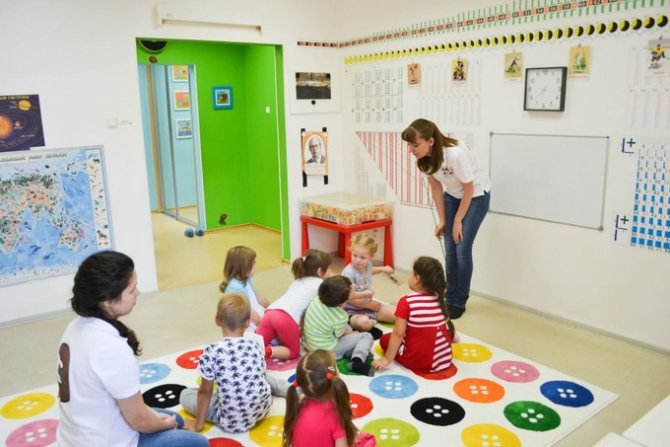
Any games to develop communication skills must be age-appropriate, that is, be accessible and understandable. If several preschool children are playing at the same time (in the yard or in the family), you need to give each of them the opportunity to participate.
It is the adult who controls the activities of the players, sets an example, explains the rules and makes sure that everyone is involved in the game. If one of the players pulled away and became shy, you need to help him return, but do it unobtrusively, gently.
- Game "Animal Choir". Any popular children's song is chosen for the game. But you need to perform it not with words, but trying to imitate the voice of different animals: “quack-quack”, “meow-meow”, “kva-kva-kva”. Each player portrays a specific animal and performs his part of the song. All the children finish singing.
- Game "Compliments". The goal of the game is to develop mutual politeness and emotional contacts. Participants should say pleasant, beautiful words to each other, trying not to repeat themselves. When giving compliments, you need to look your interlocutor in the eyes. Anyone who receives a compliment must thank the speaker in return.
- Game "Mousetrap". This game will teach you how to find a way out of difficult situations. All participants form a tight circle, in the middle of which the “mouse” hides. She must find a way out of the circle or persuade one of the participants to let her through. If the game takes place in a close company, for example, with the participation of parents, the little player can be hugged tightly and offered to free himself through persuasion.
Exercises to develop communication skills
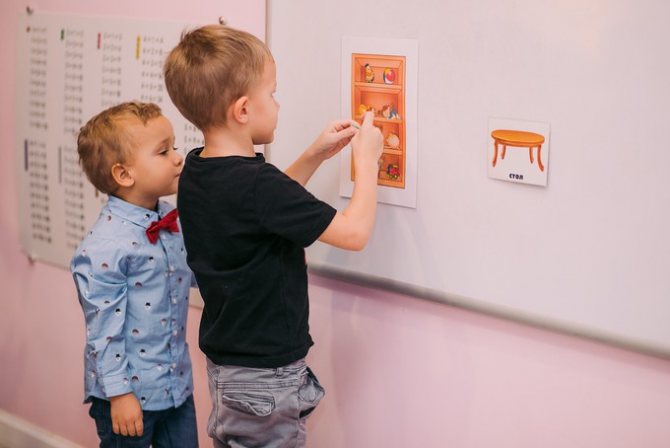
It is better to carry them out based on clarity. That is, for work you will need a board and pictures. If several children participate in an exercise, they perform them in turns. The rest of the participants observe, and if the performer allows, they can give advice.
To develop communication skills, you can use the following exercises:
- Place cards on the board with images of people on whose faces you can track certain emotions. Next, you need to tell a short story about a specific person. For example: “This is Vasya, he is sad because his favorite toy is broken.” The presenter asks the children how they can help Vasya, the players take turns offering their options.
- Divide the board into two halves, mark one with a “+” sign, the other with a “-”. Next, the children take turns going to the board and are offered several pictures. Each participant chooses a “bad” and a “good” option. It is important that the direction of the pictures is the same, for example, a whole and a broken cup, a smiling and a crying boy. Players need to make up a short story based on the pictures.
- Collective listening to a work of art. It's better to start with small fairy tales. An adult reads it to the children, and then everyone collectively discusses the plot. Particular attention should be paid to the actions of the characters, highlighting good deeds. Negative aspects also need to be noted, together with the children, figuring out why this cannot be done.
Advice! If a small participant finds it difficult to perform any exercise, you can help him. But there is no need to complete tasks for children. You can ask leading questions or voice clues. It is better to start the exercise with the simplest elements, gradually complicating the task.
Sing songs together
If you are asked to perform a song in front of everyone, can you do it? No, because this is one of the activities that confuses a person of any age and gender. When children are in preschool age, they are also embarrassed to sing in front of an audience. But the songs are wonderfully liberating. So sing along with your child when no one can hear you. Singing together is not so scary. The child will feel the rhythm and power of his own voice. If singing is even more scary for a child than talking, then talking with peers will seem like a real trifle to him. By increasing the level of difficulty, we develop more and more with every step.
How to develop your child's communication skills in everyday life
In order for a child to learn, and most importantly, to want to communicate with people around him, from childhood he needs to be provided with:
- psychological comfort;
- the opportunity to communicate with people of different ages;
- support for parents and teachers in organizing communication in the group.
In the first years of a person’s life, communication skills are shaped or not shaped by parents and family members. It is they who have the most important role - to teach the child to communicate. You don't have to be a teacher to do this. It is enough to take note of a few tips and effective techniques.
Learn poems and tell them with your family
If a child has difficulty communicating with peers, then most likely there will be problems with public speaking in the future. To liberate your child and give him self-confidence, conduct home performances more often. Memorize fables, poems, ballads together, and then tell them to your family and friends - grandparents, neighbors, close friends. When surrounded by family, the child will feel relaxed. The more often he recites poetry in front of other people, the more confident he will feel.
The role of the family in the development of communication skills in a child
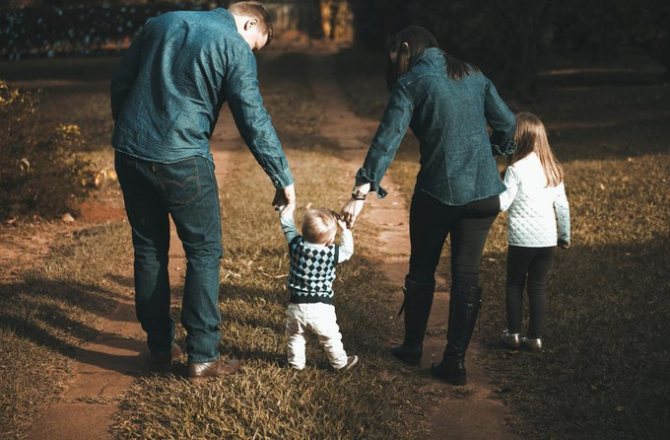
Sometimes parents make a mistake in developing the communication skills of their son or daughter. But dads and moms themselves often don’t even know about it.
Here are some examples of erroneous patterns of behavior in adult-child relationships that make it difficult to develop communication skills:
- "The pride of the family." Almost all parents consider their children to be the best and wonderful in everything. But the boundaries between unconditional love and permissiveness collapse when the child is recognized as exceptional, superior to his peers in everything. Every little person’s wish is fulfilled, all his mistakes and mistakes are forgiven, not discussed or analyzed. Such children grow up to be selfish, spoiled beyond measure.
- "Favorite." Often appears in large families. The attitude towards it is almost the same as with the “Pride of the Family” model. But only in the case of a pet, the child is singled out by only one family member. The other children feel this acutely, and relationships between brothers and sisters become envious and negative.
- "Cinderella". Another typical behavior pattern for large families. From childhood, the child is assigned a secondary role. His whole life is subordinated to his brother or sister, whom his parents, for some reason, consider more successful and beloved. “Cinderella” is forced to look after the younger one or please the older one. The result is envy and an inferiority complex.
- "Forever guilty." Such a child only causes irritation to other family members. It is he who is the cause of all troubles and is to blame for everything, even for what he did not do. Throughout childhood, a little person is terrified of punishment, of parents’ displeasure, lives in eternal fear, and becomes an outcast.
- "Good girl" (boy). From birth, this child absorbed the concepts of “good”, “bad”, “decent” and “indecent”. His whole life is subject to a whole set of rules. The opinions and interests of such children are often ignored. For parents, only one thing is important - to let others understand: the child was raised conscientiously. Growing up, a person with an excellent student complex may, on principle, commit indecent and immoral acts.
- "Problem child." Too noisy, too mischievous, too active. He does not know how and does not want to hear others; pleas, persuasion and punishment do not work on him. Often this model of behavior is due to the fact that parents do not pay enough attention to raising the child, are unable or do not want to find a common language with him.
- "Crystal Vase". Children who have experienced a serious shock, trauma or serious illness often grow up too fragile, vulnerable and protected. Those close to him protect him from everything that, in their opinion, could harm him. Such a child grows up without initiative, in the belief that everyone owes him, constantly waiting for concessions.
Possible impairment of communication skills
Communication skills are not always developed as quickly and efficiently as parents would like. There are several main communication problems in children:
- Painful mental state: anxiety, nervousness, rapid mood swings, increased excitability.
- Emotional deafness: the child does not perceive the emotions of people around him.
- Complete ignorance of others, isolation in one’s own world.
Problems in the development of communication skills usually occur in children who have the following character traits:
- Shyness, excessive isolation: such guys are usually silent, so they do not attract the children around them.
- Aggressiveness: A person who hurts others is not popular with their peers.
- Selfishness: children do not know how to empathize with others, and accordingly, they are treated the same way.
- Passivity: the child does not have his own opinion, is not able to come up with exciting activities for his peers, and does not participate in group games.



